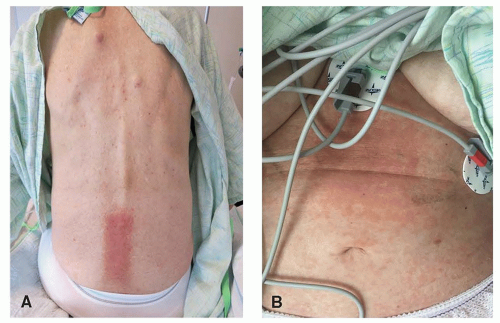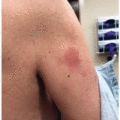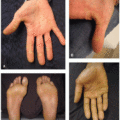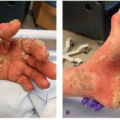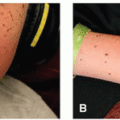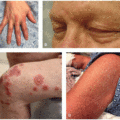Radiation Recall
Stephanie W. Liu
Radiation recall is an inflammatory skin reaction that occurs in a previously irradiated field. The recall is triggered by administration of certain pharmacologic agents sometime after exposure to ionizing radiation. The skin manifestations mimic the findings of acute sunburn or radiation dermatitis, including erythema, edema, desquamation, vesiculation, and ulceration (Figure 19.1). Patients may also experience associated pruritus or pain.1 Radiation recall dermatitis can occur days, weeks, or years following exposure to radiation. The skin findings typically occur with first administration of the triggering pharmacologic agent. Radiation recall may occur with even low doses of radiation therapy; the dose and timing of the triggering drug appear to be important, although the exact relationship between these factors remains to be elucidated.2
A variety of antineoplastic agents have been reported to trigger radiation recall, but it is particularly associated with conventional cytotoxic chemotherapy, including anthracycline, taxane, and antimetabolite agents.3 Recently, radiation recall dermatitis has been reported in targeted therapies, including epidermal growth factor receptor (EGFR), HER2, BRAF, and MEK inhibitors,4,5 as well as secondary to PD-1 inhibitors.6,7
Stay updated, free articles. Join our Telegram channel

Full access? Get Clinical Tree


